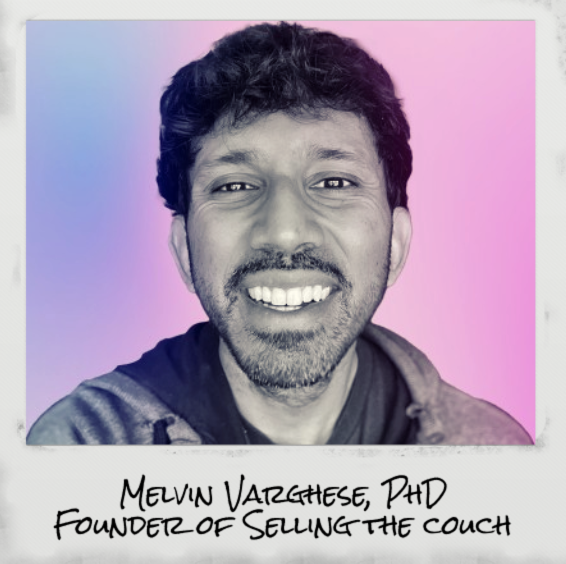Building Quietly, On His Terms
Melvin Varghese didn’t grow up dreaming about building a business. In fact, everything in his upbringing pointed the other way.
He’s the son of Indian immigrants, and like many first-generation kids, his career options were crystal clear: doctor, lawyer, engineer—or failure.
“My parents actively did not want me to pursue business at all,” he says. His dad had been a lawyer in India, his mom a nurse. When they came to Texas, his father’s law degree didn’t transfer. So he stocked shelves at Walmart and cleaned hospital bed linens. All while studying for the bar—eating cheese and crackers in the library because he didn’t want to lose a minute. His mom passed her boards and became a critical care nurse at Parkland Hospital.
“Their resilience and grit taught me so much,” Melvin says. “Not just about work—but about what it takes to start over.”
He was supposed to follow the path they carved. And for a while, he did. Pre-med, good grades, everything on track for medical school. But something about psychology hooked him. He switched majors. It didn’t go over great at home. But it felt right.
He went on to earn a PhD and became a clinical psychologist. The plan was stable: teach, see patients, maybe go the tenure track. But a mentor at Vanderbilt gave him a new perspective. “She told me, think of your skill set as something you can deploy beyond the clinic,” Melvin remembers. That stuck with him. Even if he didn’t know what to do with it yet.
In 2015, he started a podcast—Selling the Couch—to interview other therapists and learn how they built their practices. It was a side project. No real business model. Just curiosity.
He’d wake up at 3:50am to record, edit, then take the train into Center City Philly to see a full day of patients. He’d come home, edit again. Repeat. For over a year. “The podcast wasn’t making any money. But I believed in it,” he says. “I just kept showing up.”
Then life changed.
In 2018, his daughter was born eight weeks early—3 pounds, 12 ounces. NICU. Weeks in the hospital. It reshaped everything.
“That experience made me realize I didn’t want to design a business around followers, revenue, or scale,” Melvin says. “I wanted to build something that gave me time with my family, protected my health, and honored what actually mattered to me.”
He started pulling back from clinical work—hour by hour, over years. Not some dramatic leap. Just intentional steps. By 2020, he was full-time on the business.
And the business? It had evolved.
He launched a podcasting course for therapists. It did $350K in revenue and helped over 240 students. He launched a mastermind to help therapists create online courses—another $300K+ product, built slowly over four years. He waited almost three years before adding sponsors to his show—on purpose.
“I treated it like therapy,” he says. “You don’t rush an intervention in the first session. You build trust. That’s what I wanted with the podcast too.”
Melvin’s not trying to become a content mogul. He’s not optimizing for scale. What he’s building is slower, quieter, and more thoughtful. And it's growing.
Recently, he launched The Quiet Builder, a newsletter for introverted founders and leaders who want to build with intention instead of chasing virality. It’s his next chapter. And it’s rooted in the same values he’s held since day one: depth, clarity, service.
He’s not doing this to prove anyone wrong. He’s doing it to get it right—for himself, for his family, and for the community that’s grown around his work.
“I’m in a season where I want more simplicity, not complexity,” he says.
That’s not always what sells in startup culture. But for Melvin, it’s what success looks like.

